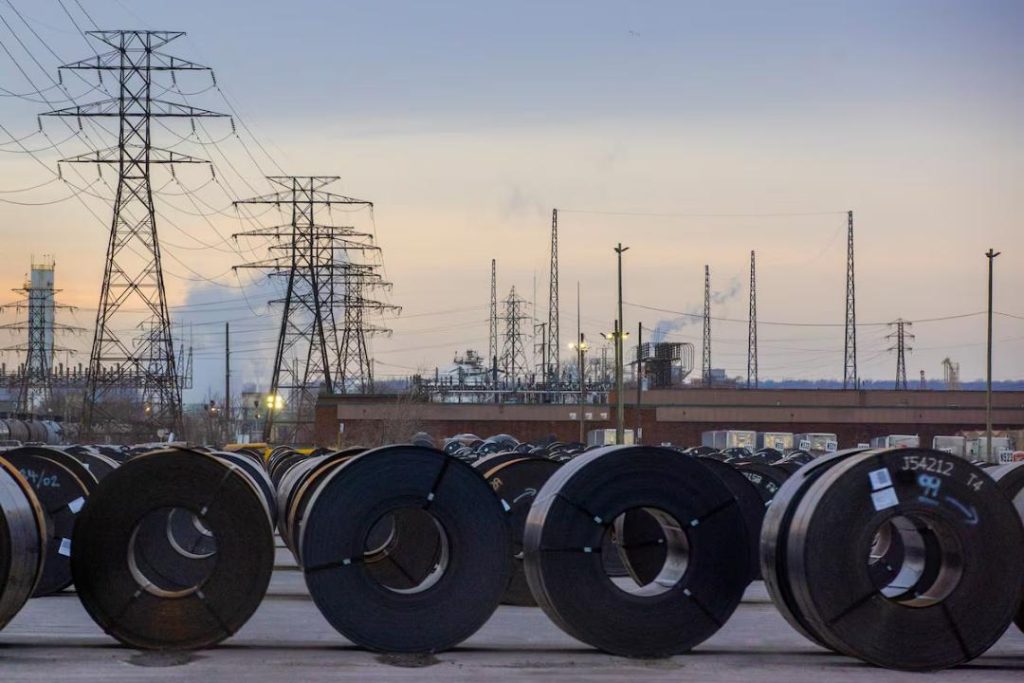
US Tariffs Hit Canada’s Steel & Aluminum Industry, Job Cuts Begin
The trade tensions between the United States and Canada continue to escalate, with the latest victim being Canada’s steel and aluminum industry. US tariffs on steel and aluminum have led to a wave of job cuts in Canada, with at least 200 workers affected, according to Marty Warren, National Director of the United Steelworkers. The situation is becoming increasingly dire, with more tariffs set to take effect on April 2, raising economic concerns and warnings of greater fallout ahead.
Canada Metal Processing Group was one of the first to announce massive job cuts due to the “threat of incoming tariffs”. The company cut 140 jobs, citing the uncertainty and unpredictability of the tariffs as the reason for the layoffs. This decision is expected to have a ripple effect on the economy, as these workers will not only lose their jobs but also their income, which will have a significant impact on local communities.
The tariffs, imposed by the US in June 2018, were meant to protect American industries from what Washington claimed was unfair competition from Canada and other countries. However, the measures have had the opposite effect, causing significant damage to Canada’s steel and aluminum industry. The tariffs have made it difficult for Canadian companies to compete with their American counterparts, leading to a decline in production and a rise in unemployment.
The United Steelworkers, a union that represents workers in the steel and aluminum industry, has been vocal about the devastating impact of the tariffs. Marty Warren, the union’s National Director, has been urging the Canadian government to take action to address the issue. “These tariffs are costing Canadian jobs and threatening the very future of our industry,” Warren said in a statement. “We need the Canadian government to take immediate action to protect our industry and our workers.”
The Canadian government has been working to find a solution to the issue, but so far, it has been unsuccessful. In August 2018, Canada imposed retaliatory tariffs on $12.6 billion worth of American goods, including steel and aluminum products. However, the tariffs have not had the desired effect, and the US has refused to lift them.
The situation is becoming increasingly dire, with more tariffs set to take effect on April 2. These tariffs will apply to a wider range of steel and aluminum products, including some of the most critical components of the industry. The move is expected to lead to even more job losses and a further decline in production.
Economists are warning of greater fallout ahead, as the tariffs continue to take a toll on the Canadian economy. “The tariffs are having a profound impact on the Canadian economy, and it’s not just the steel and aluminum industry that’s being affected,” said Craig Alexander, a senior vice-president at the Conference Board of Canada. “We’re seeing a decline in business investment, a rise in unemployment, and a decrease in economic growth. The tariffs are causing a ripple effect that will be felt across the entire economy.”
The situation is also causing tension between the US and Canada, with the two countries engaging in a trade war. The US has imposed tariffs on a range of Canadian products, including steel and aluminum, while Canada has retaliated with its own tariffs on American goods. The dispute is expected to continue, with neither side willing to back down.
In conclusion, the US tariffs on steel and aluminum have had a devastating impact on Canada’s steel and aluminum industry, leading to massive job losses and a decline in production. The situation is expected to worsen, with more tariffs set to take effect on April 2. The Canadian government and industry leaders must work together to find a solution to the issue, or risk facing even greater economic fallout.
Source:






